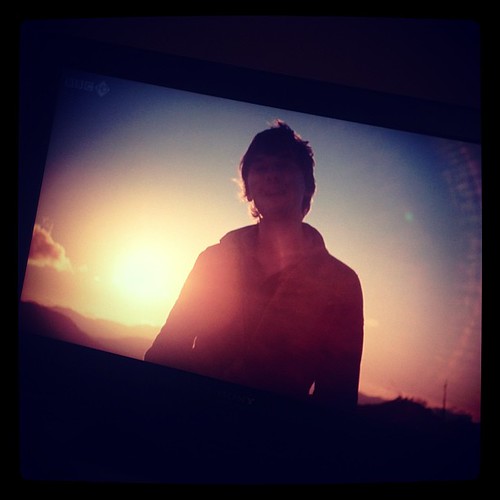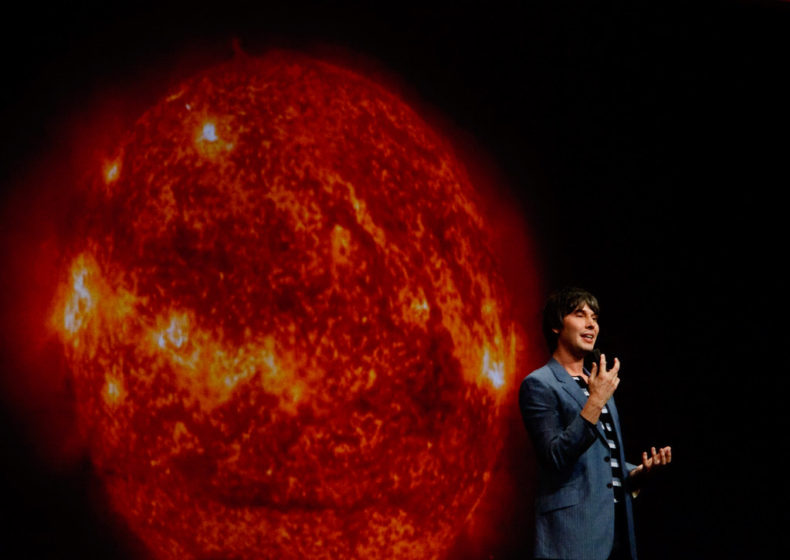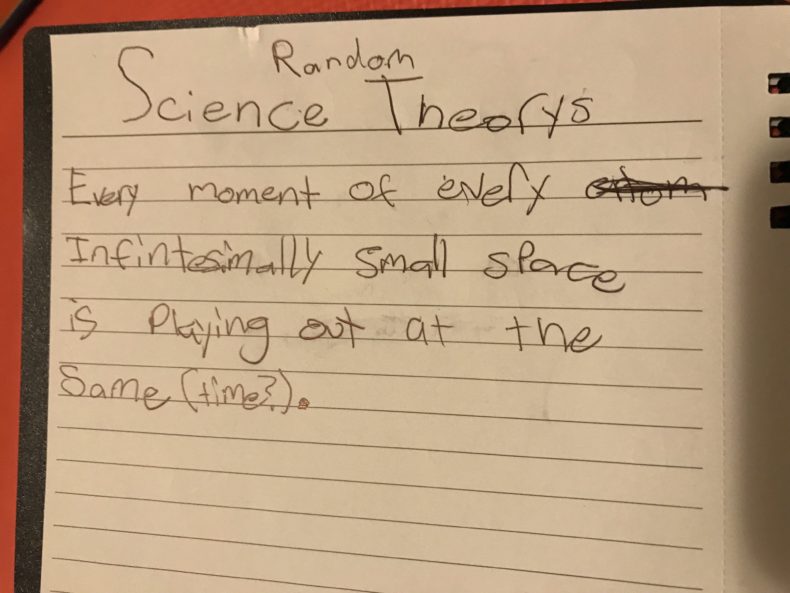
According to Lev Vygotsky’s psychological development theory, children should be given experiences that are in their zone of proximal development. That is, things that are beyond their own independent capability, but that can be achieved or understood with the guidance of a “knowledgeable other.” The adult’s help provides scaffolding that can eventually be dismantled as the child’s sphere of competence grows.
Physicist Brian Cox is on a world tour with his show, Universal, and when I saw he was speaking in our city, I was torn. Reviews complained that while the tickets were sold on the promise of “not a physics lecture”, it most certainly was a straight-up physics lecture, and it went completely over the reviewers’ heads. My 10-year-old, Oliver, was probably a few years away from really being able to engage with this sort of thing, and if I brought him to something baffling and boring, he might be turned off serious science altogether. Worse yet, it might be a blow to his confidence. This was not a children’s show, to say the least.
On the other hand, while completely unknown in Canada, Brian Cox is a household name in England, regularly placed alongside David Attenborough in the science communication halls of fame. In a place like Ottawa, you never know when an interesting visitor will ever stop by again. In fact, this was Brian Cox’s first ever lecture in Canada.
I had to take this opportunity now or risk my son’s never seeing him at all. Anyway, the zone of proximal development does not only depend on the material to be learned. It also depends on the skill of the knowledgeable other. The more deftly a teacher can lead a student to scramble and climb over carefully constructed scaffolding, the farther from the child’s current understanding they can venture. I booked tickets and crossed my fingers.
A stumbling block arose—I realized I had invited one of Oliver’s friends for a sleepover the night before the lecture. Rather than risk a tired brain or, worse still, a fatigue-induced meltdown, I hosted the two boys in separate rooms. Miraculously, they got a real night’s sleep. Then I invited Oliver’s most Hermione-type friend to accompany us to the lecture. If anyone could normalize for him–through sheer enthusiasm–the idea of 10-year-olds learning physics in a crowd full of adults on a Sunday night, it was this girl.

The show was fantastic. High production values, gorgeous and enormous images of the universe, palate-cleansing banter from comedian Robin Ince. To demonstrate the speed of light’s relationship to space-time, Cox used moments in his own life, complete with family photos from the 1970s. He described entropy in the universe in terms of a coffee with a layer of foamed milk on top, being stirred. According to him, we’re at that interesting bit where beautiful, complex swirls appear around the spoon—before the entropy of a homogeneously stirred latte engulfs the universe.
After the lecture, we walked Oliver’s friend home across a dimly lit park under the stars. It was the first proper Spring evening in Ottawa, and it was a joy to listen to the two of them chatting. If the starlight we see really does come from the distant past, they reasoned, then you’re actually seeing the past everywhere you look. I felt grateful to Cox for bringing these children into a moment when they could question, in new ways, the forces around them.
I hadn’t heard a peep about it since, and I had stored the night away as a treasured memory. That is, until I found this on the floor of our playroom:

I so relate to those brackets and question mark—the problem of time is such a tricky one. The lecture’s mind-stretching insights are still in that head of his, being pondered along with a zen-like theory of the oneness of all things. I would say that’s worth the ticket price.
Images: “Amazing Brian Cox” by garretkeogh is licensed under CC BY-NC-SA 2.0
“Prof Brian Cox 7” by Greyhawk68 is licensed under CC BY-NC-ND 2.0
Jesus, Jessa, this made my eyes well up.